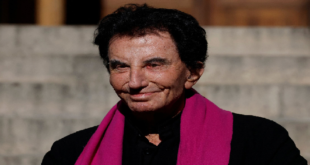16-12-2022
LONDON: Nurses in the United Kingdom have staged an unprecedented one-day strike as a “last resort” in their fight for better wages and working conditions.
Up to 100,000 members of the Royal College of Nursing (RCN) in England, Wales and Northern Ireland are stopping work from 08:00 GMT to 20:00 GMT on Thursday after rejecting a government pay offer.
 The RCN’s industrial action is part of a growing wave of stoppages by public and private sector employees.
The RCN’s industrial action is part of a growing wave of stoppages by public and private sector employees.
Picket lines were being set up at leading state-run hospitals, including Guy’s and St Thomas NHS Foundation Trust in London.
Ameera, a senior nurse in London, told media that “we have not chosen industrial action lightly”.
The strike is the first in the RCN union’s 106-year history.
“We’re tired. We’re fed up,” added the nurse, who asked that her last name not be reported. “We need a pay rise now to make a living.”
Cost-of-living crisis
The UK is currently grappling with a cost-of-living crisis as spiraling inflation outstrips wage growth.
Union leaders and health workers also said nurses were being overworked due to staff shortages, as the state-run  National Health Service (NHS) battled a backlog in appointments made worse by cancellations during the coronavirus pandemic.
National Health Service (NHS) battled a backlog in appointments made worse by cancellations during the coronavirus pandemic.
Chemotherapy, dialysis, intensive care and high-dependency units, as well as neonatal and pediatric intensive care will be protected but other services will be reduced to Christmas staffing levels during the walkout, the RCN said.
Saffron Cordery, interim chief executive of NHS Providers, said NHS trusts were “pulling out all the stops” to lessen the effect on patients.
“The picture will vary across the country as trust leaders’ work out service levels with unions locally,” she added.
Care concern
Health chiefs warned unions that care levels could suffer because of the walkout, just as seasonal respiratory conditions such as flu add pressure on already stretched services.
Cally Palmer, national cancer director for England, called on the union to exempt cancer surgery from the walkout, while England’s chief nursing officer expressed concern over the strike staffing plans.
 “We hear from our colleagues that they are concerned by the assumption, implied by the RCN, that night duty staffing on day duty is safe,” Ruth May wrote in a letter to the RCN.
“We hear from our colleagues that they are concerned by the assumption, implied by the RCN, that night duty staffing on day duty is safe,” Ruth May wrote in a letter to the RCN.
“This decision has the potential to significantly impact on the safety of patient care [for example, by impacting delivery of intravenous antibiotics on time, patient observations and medication rounds],” she added.
Healthcare unions say their members are skipping meals, struggling to feed and clothe their families, and leaving the NHS in droves.
The RCN wants a pay rise significantly above inflation, which surged to a 41-year high of 11.1 percent in October, falling slightly to 10.7 percent last month.
The government maintains the demands are unaffordable and Health Secretary Steve Barclay called the strikes “deeply regrettable”. (Int’l Monitoring Desk)
 Pressmediaofindia
Pressmediaofindia




